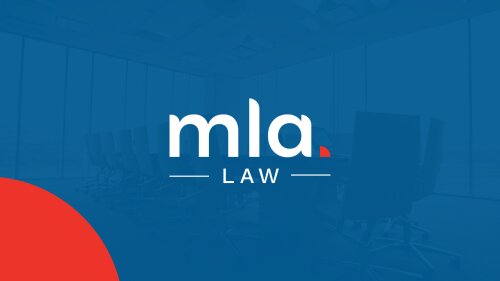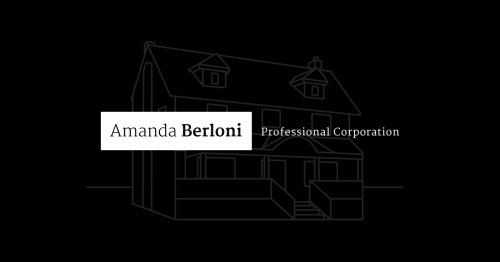Best Mining Law Lawyers in Greater Sudbury
Share your needs with us, get contacted by law firms.
Free. Takes 2 min.
List of the best lawyers in Greater Sudbury, Canada
About Mining Law in Greater Sudbury, Canada
Mining Law in Greater Sudbury, Canada encompasses the legal framework that regulates how minerals are explored, extracted, developed, and reclaimed within the region. Greater Sudbury is renowned for its rich mineral resources, particularly nickel, copper, and other base metals. As such, Mining Law governs relationships between landowners, mining companies, Indigenous communities, regulators, and the broader public. In Sudbury, Mining Law is shaped by a blend of federal and provincial statutes, industry best practices, and local considerations that ensure resource development is conducted responsibly and sustainably.
Why You May Need a Lawyer
Mining projects can be complex, involving a web of legal obligations, stakeholder interests, and potential conflicts. Here are common situations where legal guidance may be necessary:
- Securing mineral rights, leases, or claims
- Negotiating agreements between landowners, miners, and Indigenous groups
- Understanding environmental regulations and obtaining permits
- Addressing disputes over land use or mineral ownership
- Ensuring compliance with health and safety standards
- Handling mergers, acquisitions, or financing relating to mining projects
- Managing rehabilitation, closure, or post-mining land use responsibilities
A lawyer specializing in Mining Law can help protect your interests, interpret regulations, and navigate the paperwork and negotiations involved in mining projects.
Local Laws Overview
Mining activity in Greater Sudbury falls under various legislative regimes, primarily at the provincial level. The Ontario Mining Act is the cornerstone statute governing the staking of mining claims, exploration, development, operations, and rehabilitation in the province. It establishes the framework for acquiring mineral rights, procedures for claim registration, and the obligations of miners and claim holders. Local municipal bylaws may also influence issues like zoning, noise, truck routes, and community consultations.
Mining projects must adhere to environmental laws such as the Ontario Environmental Protection Act, which sets requirements for permits, mitigation of impacts, and remediation of sites. There are also federal statutes, such as the Impact Assessment Act, that may apply to larger projects or those near certain waterways and Indigenous lands. Occupational health and safety guidelines are strictly enforced to protect workers. In Sudbury, with its history of mining and environmental rehabilitation, close collaboration with regulatory agencies and community stakeholders is common.
Frequently Asked Questions
What is included under Mining Law in Greater Sudbury?
Mining Law covers exploration, claim staking, mining leases, environmental compliance, occupational health and safety, land access, Indigenous consultations, and mine closure obligations.
Who owns minerals in the ground in Ontario?
In Ontario, most minerals are owned by the Crown, not private landowners. To extract these minerals, individuals or companies must acquire the proper mining rights, claims, or leases from the government.
How do you stake a mining claim in Greater Sudbury?
Claim staking in Ontario is managed through an online system called the Mining Lands Administration System (MLAS). You must register as a prospector and follow specific requirements to stake a claim and maintain it.
Do you need permission from landowners to explore for minerals?
Generally, exploration requires notification to landowners and, in some cases, their consent. There are additional requirements for Indigenous lands or areas with special designations.
What environmental regulations apply to mining in Sudbury?
Mining activities are subject to the Ontario Environmental Protection Act and, for larger projects, possibly federal laws. Permits are required for discharges, waste management, and site reclamation.
Are there special rules for mining near residential areas or water bodies?
Yes, stricter environmental and safety standards apply when mining near sensitive areas, including setbacks, buffer zones, and consultation processes with affected communities.
How are Indigenous rights considered in mining projects?
Consultation with Indigenous communities is a legal requirement for many mining activities. Agreements may provide for benefits, protections of traditional lands, and shared decision-making.
What happens if there is a dispute over a mining claim?
Disputes are handled through processes set out in the Ontario Mining Act, often involving the Office of the Mining and Lands Commissioner, and sometimes require legal representation or mediation.
What are the responsibilities for closing a mine?
The law requires detailed mine closure plans, financial assurances, and environmental rehabilitation to restore the site to a safe and stable condition after mining ends.
Are there tax implications for mining activities in Greater Sudbury?
Yes, mining projects must comply with federal and provincial taxation, including taxes specific to mineral production, royalties, and certain incentives for exploration activity.
Additional Resources
Several agencies provide guidance and oversight for mining in Greater Sudbury:
- Ontario Ministry of Mines: Responsible for administering the Ontario Mining Act and issuing permits
- Office of the Mining and Lands Commissioner: Handles certain disputes and hearings related to mining claims and land use
- Ministry of the Environment, Conservation and Parks: Regulates environmental approvals for mining projects
- Greater Sudbury Municipal Planning Office: Offers information related to local bylaws, permits, and community consultations
- Indigenous groups and organizations: Provide guidance on consultation and partnership regarding traditional territories
- Canadian Institute of Mining, Metallurgy and Petroleum: Offers professional resources and advocacy
Next Steps
If you believe you need legal advice or assistance regarding Mining Law in Greater Sudbury, consider the following actions:
- Identify your legal needs, such as acquiring a claim, resolving a dispute, or navigating regulations
- Gather all relevant documentation related to your issue, including claim papers, permits, land deeds, and correspondence
- Reach out to a lawyer or law firm with experience in Mining Law, preferably one familiar with the Greater Sudbury area and local stakeholders
- Schedule a consultation to discuss your situation and determine your options
- If your matter involves government permits or Indigenous consultation, allow for sufficient time for these processes
- Continue to educate yourself through resources provided by government agencies and professional organizations
Prompt legal advice can help you avoid costly mistakes, ensure compliance, and facilitate constructive negotiations in the complex field of Mining Law.
Lawzana helps you find the best lawyers and law firms in Greater Sudbury through a curated and pre-screened list of qualified legal professionals. Our platform offers rankings and detailed profiles of attorneys and law firms, allowing you to compare based on practice areas, including Mining Law, experience, and client feedback.
Each profile includes a description of the firm's areas of practice, client reviews, team members and partners, year of establishment, spoken languages, office locations, contact information, social media presence, and any published articles or resources. Most firms on our platform speak English and are experienced in both local and international legal matters.
Get a quote from top-rated law firms in Greater Sudbury, Canada — quickly, securely, and without unnecessary hassle.
Disclaimer:
The information provided on this page is for general informational purposes only and does not constitute legal advice. While we strive to ensure the accuracy and relevance of the content, legal information may change over time, and interpretations of the law can vary. You should always consult with a qualified legal professional for advice specific to your situation.
We disclaim all liability for actions taken or not taken based on the content of this page. If you believe any information is incorrect or outdated, please contact us, and we will review and update it where appropriate.










